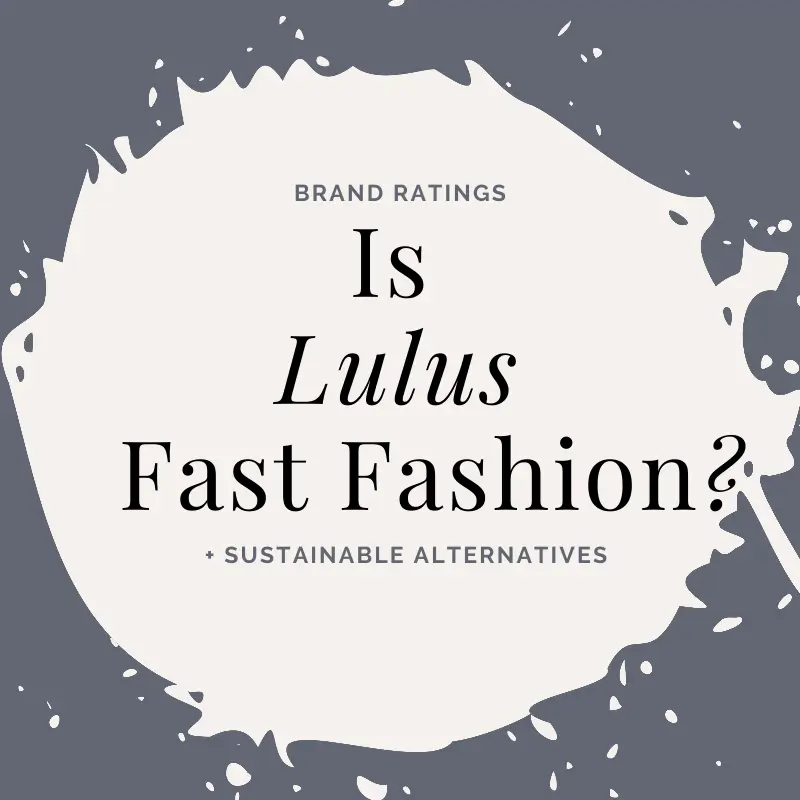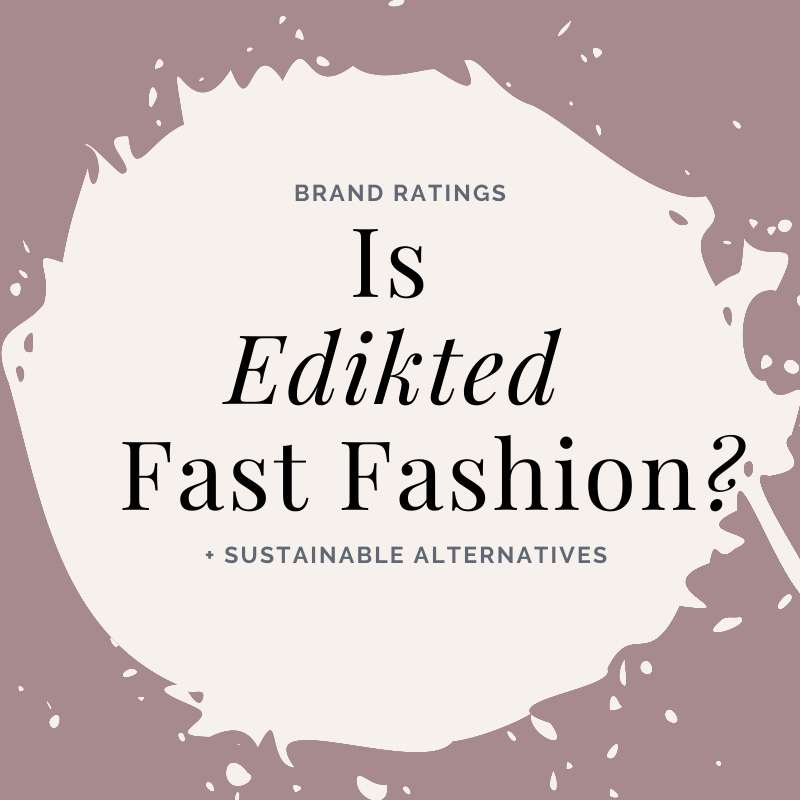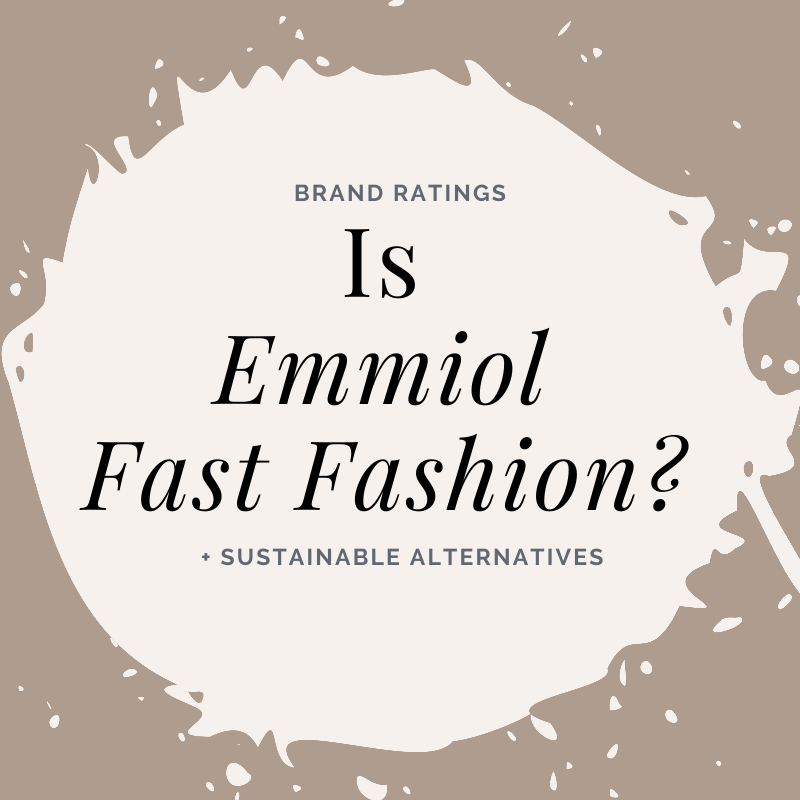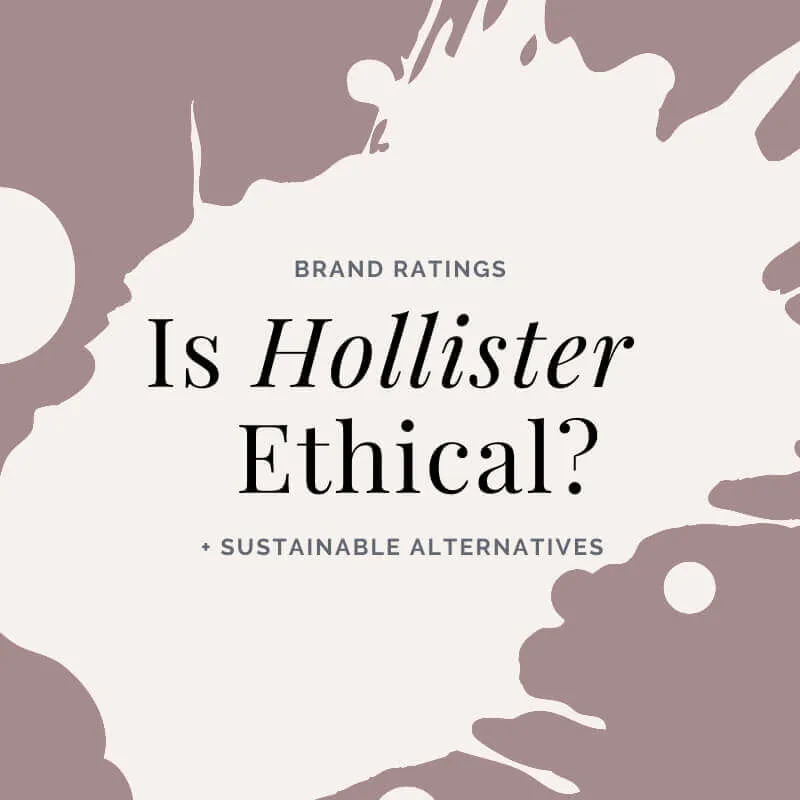
Hollister Co is a Californian-inspired clothing brand, creating jeans, tops, and shirts for teens and young adults.
American retail giant Abercrombie and Fitch own the brand. Its parent company also owns Abercrombie and Fitch, Gilly Hicks, and Social Tourist.
The brand is famous for its dark-lit stores and casual, carefree clothes; however, is Hollister a fast fashion brand? We answer the question, and more in our article is Hollister ethical.
Ecothes Opinion: Overall Brand Rating
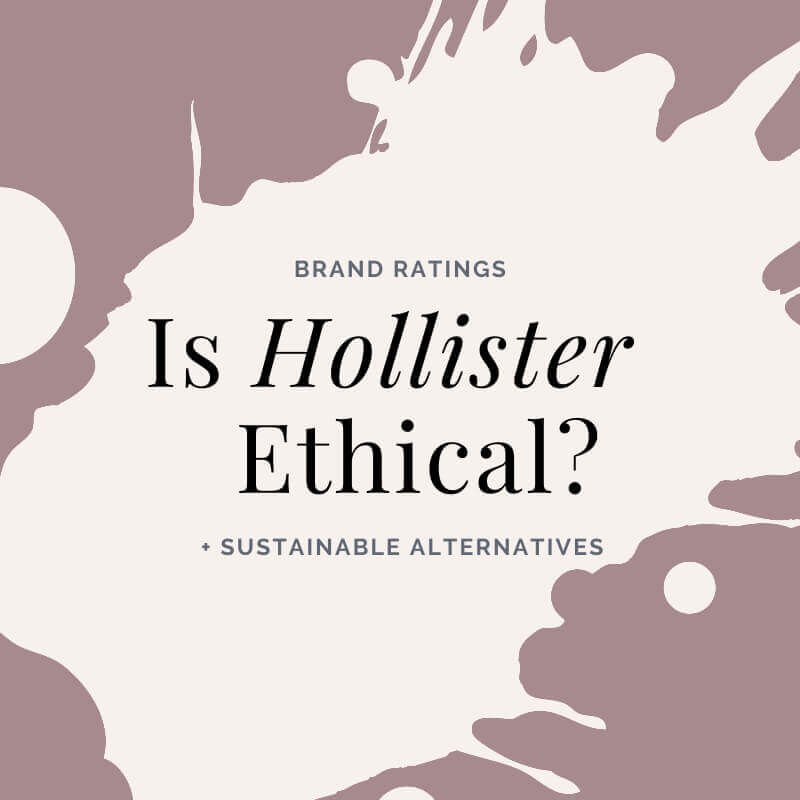
Is Hollister Fast Fashion?
Hollister produces large quantities of rapidly rotating seasonal stock from unsustainable materials. As a result, much of this stock ends up discounted in the end-of-season sales.
We would therefore classify Hollister as a fast-fashion brand.
What Materials Does Hollister Use?
The majority of Hollister garments are made from cotton, polyester, and viscose.
To try and introduce more sustainable materials into its clothing range, Hollister states its partnering with the Better Cotton Initiative.
This program educates and supports farmers and cotton suppliers to use less water and harmful chemicals and promote workers’ safety and wellbeing.
Hollister aims to source 25% of all of its cotton by 2025. Introducing more sustainable materials is a step in the right direction; however, this is still a tiny percentage of overall cotton in its supply chain.
We would expect the brand to commit to a more stretching target to drive real change.
Hollister recognizes the importance of shifting to sustainably sourced materials; in a statement on its website, Hollisters spin-off brand Gilly Hicks will be making more styles with eco-friendly materials like recycled fabrics & organic cotton. Again a step in the right direction; however, this is currently just an empty statement until we see real change in its product lines.
Is Hollister Cruelty-Free?
No.
Hollister uses wool, leather, and down in its collections.
Hollister has transitioned to using 100% Responsible Down Standard in its coats.
Is Hollister Carbon Neutral?
No.
Hollister’s parent company, Abercrombie and Fitch, aims to reduce carbon emissions. However, there is no mention that Hollister is striving for a carbon-neutral supply chain in the future.
Does Hollister Use Sweatshops?
Hollister doesn’t disclose information on the suppliers on its website. However, its parent company, Abercrombie and Fitch Co, publishes a list of suppliers and factories but provides no further information around the working conditions, environments, or wages paid to garment workers in its factories.
Most A&F Co. suppliers are based in Vietnam, China and India. You can read the complete list of active factories here.
Abercrombie and Fitch Co. states it audits 100% of its Tier 1 cut & sew factories; however, there is no public information on the factory audit scores. In addition, A&F Co. doesn’t disclose the percentage of Tier 2 suppliers it audits.
Without proof of the working conditions in each of these factories, we can’t say that Hollister doesn’t use sweatshops, has ethical practices, or has an ethical supply chain.
4 Sustainable Alternatives to Hollister
There are many ethical and sustainable alternatives to Hollister, who are doing good for both people and the environment.
Here are a few of our favorites who already prioritize the use of natural and sustainable fabrics and have eco-friendly and ethical supply chains.
If you want to discover more sustainable clothing brands you’ll love our article on the 17 best affordable brands.
1. Pact
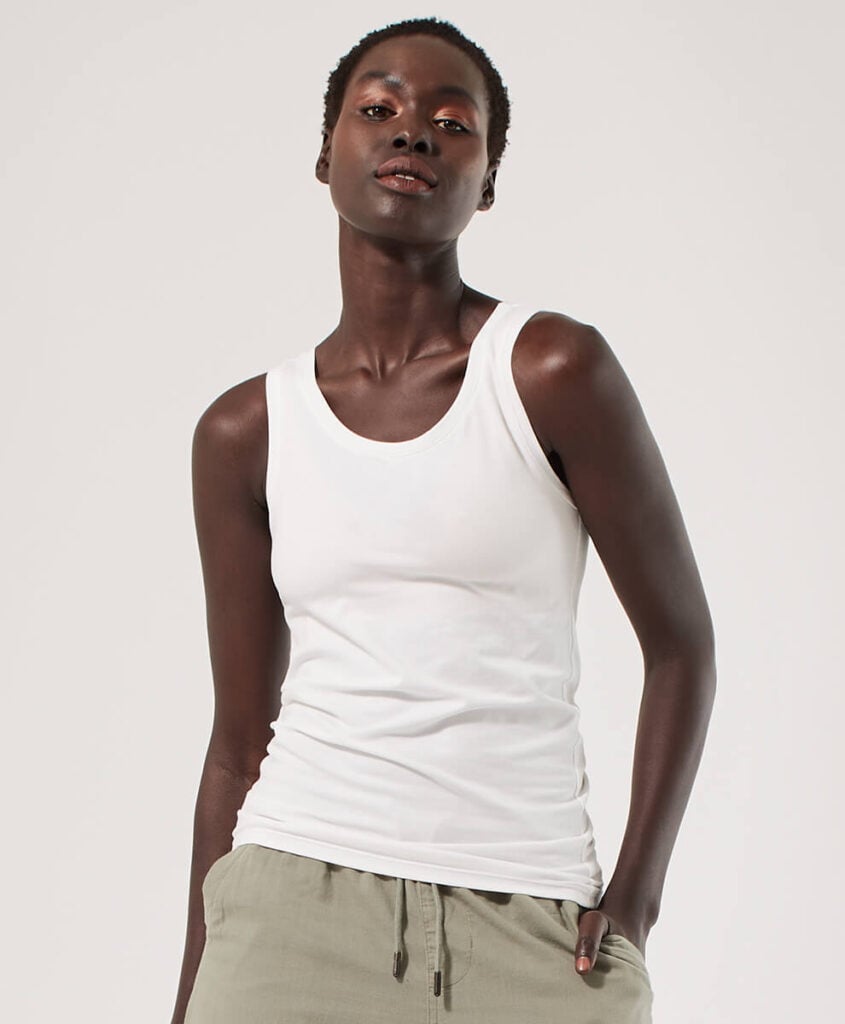
2. For Days
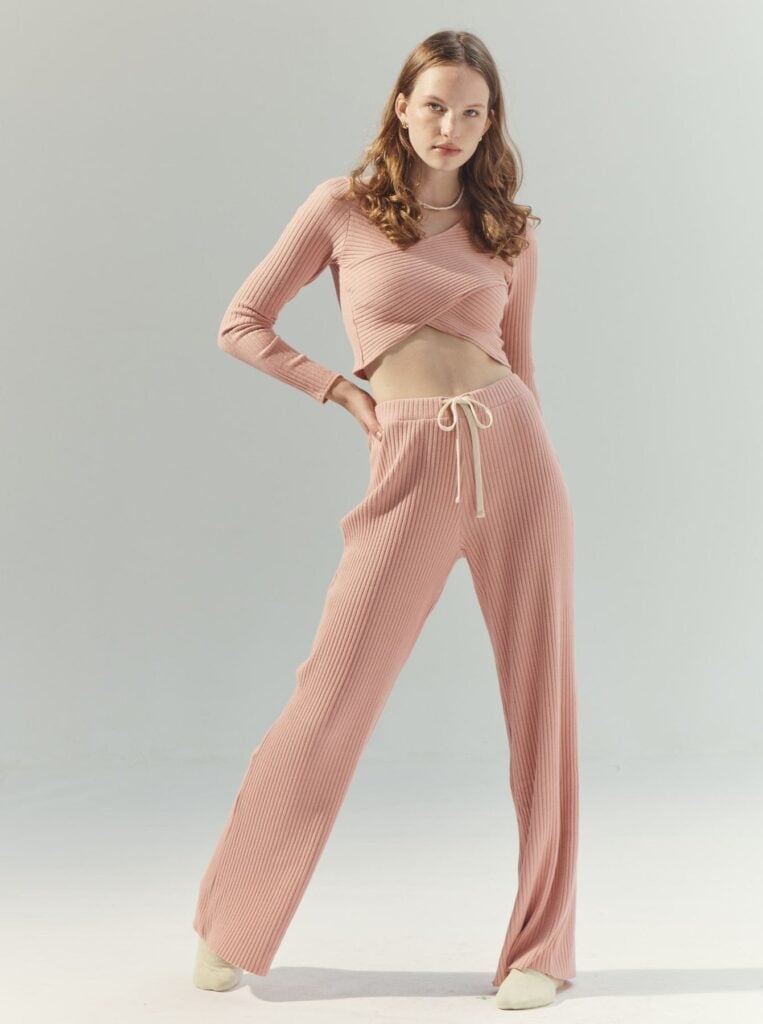
3. Mate The Label
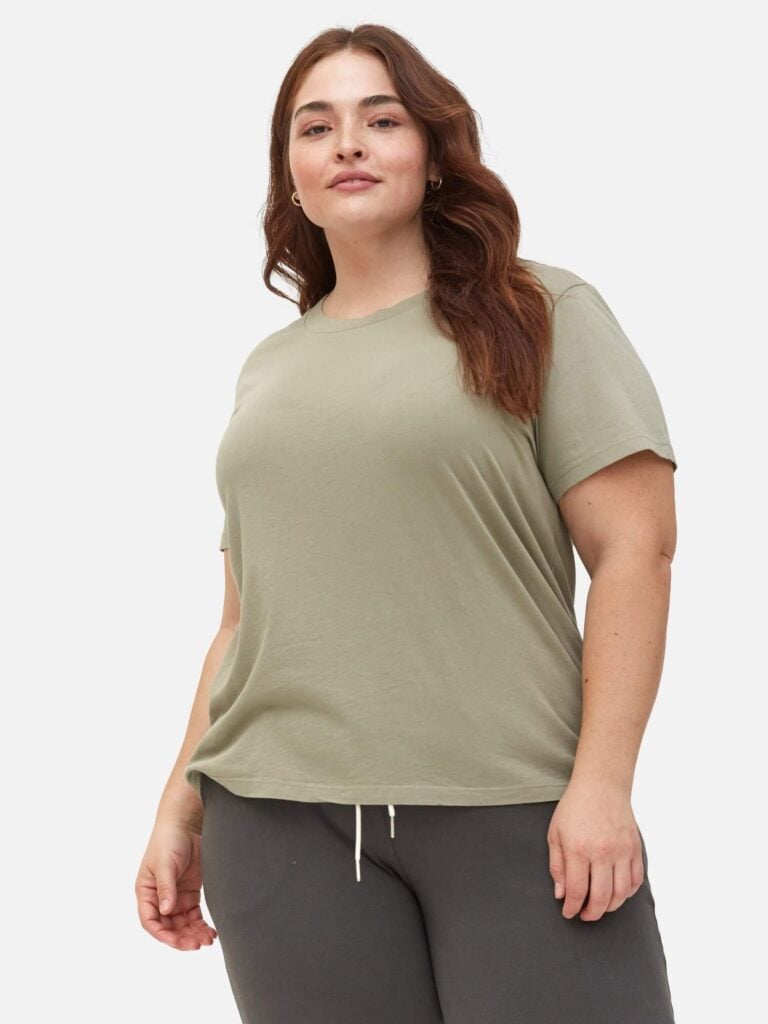
4. Kitty & Vibe Swimwear

Hopefully you’ve enjoyed the article, and now have the information to make your own decision on Hollister’s ethics.
Take a look at our other brand ratings of brands like Shein, Zara, Blushmark, and Banana Republic.
If you enjoyed this article, you may also enjoy reading our guides on sustainable sneakers and sustainable sandals.
Thanks for reading.

